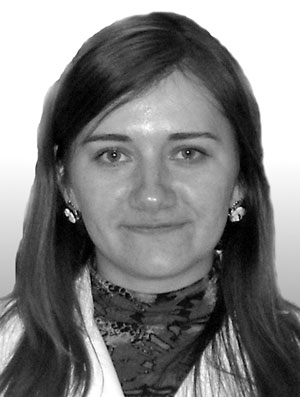Assessment of Crash Swimming Course for Primary Schoolchildren
Фотографии:
ˑ:
E. Yu. D'yakova, associate professor, Dr.Med.
A.N. Zakharova
G.S. Lalaeva
National Research Tomsk State University, Tomsk
Key words: crash swimming course, primary schoolchildren, physical state.
Swimming is one of the most important techniques of physical training, so it is included in the content of physical education curricula for pre-school institutions, comprehensive schools, secondary and specialized higher educational institutions. Despite the efforts of numerous researchers to find the most effective methods of teaching swimming, the desired result has not yet been achieved: the training process is still very time consuming. Some researchers and educators believe that crash swimming courses enable to achieve high results quicker, as at this age children can quickly assimilate new material and master motor skills.
Existing crash swimming courses for children are not adapted to the current material and technical conditions in many sports schools.
The purpose of the present study was to determine the effect of the crash swimming course on the physical state of primary schoolchildren.
Proceeding from the analysis of the findings, it can be concluded that the crash swimming course can be applied for children to get used to the water, to develop the ability to float, to master the simplest technical elements and simplified swimming techniques. The level of physical load is to correspond to the functional status of children. However, the use of traditional programs is more appropriate for teaching sports swimming techniques to children of primary school age.
References
- Gerkan, L.V. Elementary teaching to swim in deep water (based on the GDR experience) / L.V. Gerkan. – Moscow: Fizkul’tura i sport, 1971. – 86 P. (In Russian)
- Kashkin, A.A. Sample program of sports training for children's sports schools, specialized children's sport schools of the Olympic reserve / A.A. Kashkin. – Moscow: Sovetsky sport, 2006. – 216 P. (In Russian)
- Maryanicheva, E.G. Swimming training for primary schoolchildren based on the supporting stroke and motor representations: abstract of Ph.D. thesis / E.G. Maryanicheva. - Krasnodar, 1997. – 21 P. (In Russian)
- Osokina, T.I. Methods of assessing swimming skills of children [electronic resource]: Swimming diagnostics / T.I. Osokina. – URL: http://wiki.iteach.ru/images (access date 20.09.2011). (In Russian)
- Pyzhov, V.V. Teaching methods in case of mass teaching swimming (based on the pioneer camps of the USSR): abstract of Ph.D. thesis / V.V. Pyzhov. - Kiev, 1971. – 21 P. (In Russian)
- Raevsky, D.A. Laying the foundations of motor fitness to improve the efficiency of swimming training for primary schoolchildren: abstract of Ph.D. thesis / D.A. Raevskii. - Malakhovka, 2011. – 23 P. (In Russian)
- Fedchenko, I.A. Standardization of loads of swimming training sessions in technical colleges in order to increase students' physical working capacity: abstract of Ph.D. thesis / I.A. Fedchenko. – Moscow, 1989. – 24 P. (In Russian)




 Журнал "THEORY AND PRACTICE
Журнал "THEORY AND PRACTICE